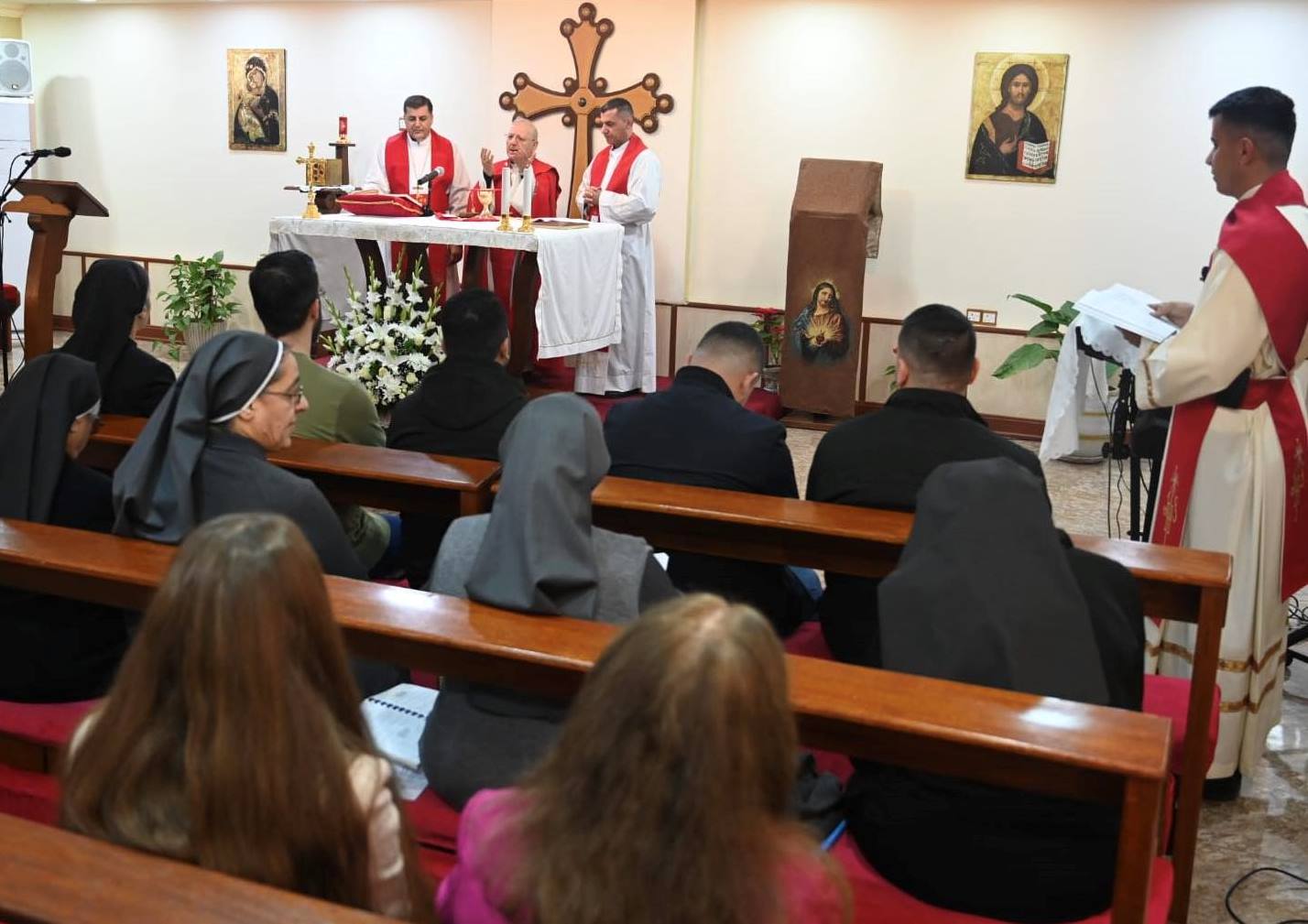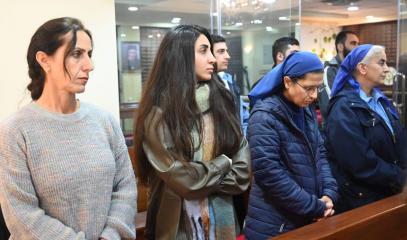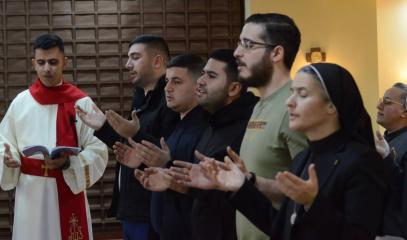Card. Sako: a 'crisis unit' against the Iraqi Christian exodus and the division between Churches
The Chaldean Patriarch raises the alarm over the continuous emigration of Christians, many of whom belong to the productive sector. They are increasingly "marginalised" in the country and no answers are coming from the government. From the joint effort of some leading ecclesiastical figures a renewed commitment for the future.
Erbil (AsiaNews) - Iraqi Christians "are fleeing" from their country and many of them belong to the "productive segment" or the "most educated" sectors of the population (also) due to the "divisions" between the Churches, so far unable to implement strong and unitary policies and initiatives to give them a future.
The j'accuse was launched by the Patriarch of Baghdad of the Chaldeans, Card. Louis Raphael Sako, in a long message to the faithful in Iraq and around the world published on the patriarchate website and sent to AsiaNews for information.
From the temporary seat of Erbil, in Iraqi Kurdistan, where the cardinal has withdrawn until the controversy linked to the presidential decree which is a source of conflict and further division is resolved, he renews the appeal for a common commitment and evokes the creation of a “crisis unit”.
In Iraq, observes the Chaldean primate, "there is no strategy, security or economic stability", there is a lack of "sovereignty" and there is a "double" application of the concepts of democracy, freedom, constitution, law and citizenship by those who should be at the service of the country and its inhabitants.
In this way the institutions have been "weakened" and there has been a "decline" in morals and values, services, healthcare and education have worsened, as well as "widespread corruption" and "growing unemployment" combined to a returning illiteracy.
In this context, the Christian component, already on the margins, has become even more fragile and has been the subject of kidnappings, killings that began in 2003 with the US invasion and culminated in the years of domination of the Islamic State (ISIS), with the great escape from Mosul and the Nineveh Plain.
He thanks the Kurdistan regional government for its welcome and underlines once again the great commitment made by the Church "for the reconstruction" of homes and businesses after the liberation. Otherwise, he warns, they would end up "the same end as the Palestinians in Gaza", forgotten and marginalized, because the central government in Baghdad "did nothing for them".
Nonetheless, attacks on Christians continue today with the loss of jobs, seizure of property, forced conversions by ISIS or other groups, Islamization of minors, denied rights. Behind this policy, he warns, there is a "deliberate" attempt to "erase" their heritage, history, legacy at the level of faith.
An atmosphere of hatred also fueled by religious leaders (Muslims), who prohibit Christmas greetings to Christians, even though Jesus Christ is celebrated and honored in the Koran. But what is most striking, he continues, is the inertia of the government and judiciary regarding the tragedy at the Christian wedding in Qaraqosh last September, with over a hundred victims: nothing has been done so far, the investigations are fugitive and those responsible remain unpunished.
The emergency is confirmed by the numbers, as revealed by the patriarch himself: in the last 20 years over one million Christians (out of a total of less than 1.5 million) have fled. In the last few weeks alone, "over 100 families have left Qaraqosh and emigrated", joining "dozens of families from other cities" who have fled due to an uncertain future and months of unpaid wages.
And the very story of the “Babylon Movement” which plotted behind the back of Card. Sako shows how "Christian parties are divided and in constant search of power and money". "In the same way, Christians abroad - he attacks - have failed to create a lobby" to support those who remained "because of their fanaticism" and some write "destructive articles" which then publish "on social media".
Not only the parties, continues the cardinal, but even within the Church there are deep divisions that risk undermining the good relations with Sunnis and Shiites and the "mutual respect" left by Pope Francis' visit to Iraq in March 2021.
Here because "the Christian parties and Churches must unite: without unity, the country will be emptied of its indigenous component" which is also the "maximum expression of its ancient civilization".
To do this, authoritative and respectable ecclesiastical personalities are needed, who represent "the hope of the Church: I proudly refer to the majority of the bishops of the Chaldean Church and to bishops Nicodemus Sharaf Dauod for the Syrian Orthodox Church, Benedict Younan Hannu for the Church Syrian Catholic, Elijah Isaac for the Assyrian Church of the East, Ghattas Hazim for the Greek Orthodox Church and Farouk Hammo, head of the Evangelical Church".
“I hope that this team - concludes the cardinal - forms a 'crisis unit' with the Chaldean Church to face the challenges and protect the remaining Christians”.
07/02/2019 17:28









.png)










